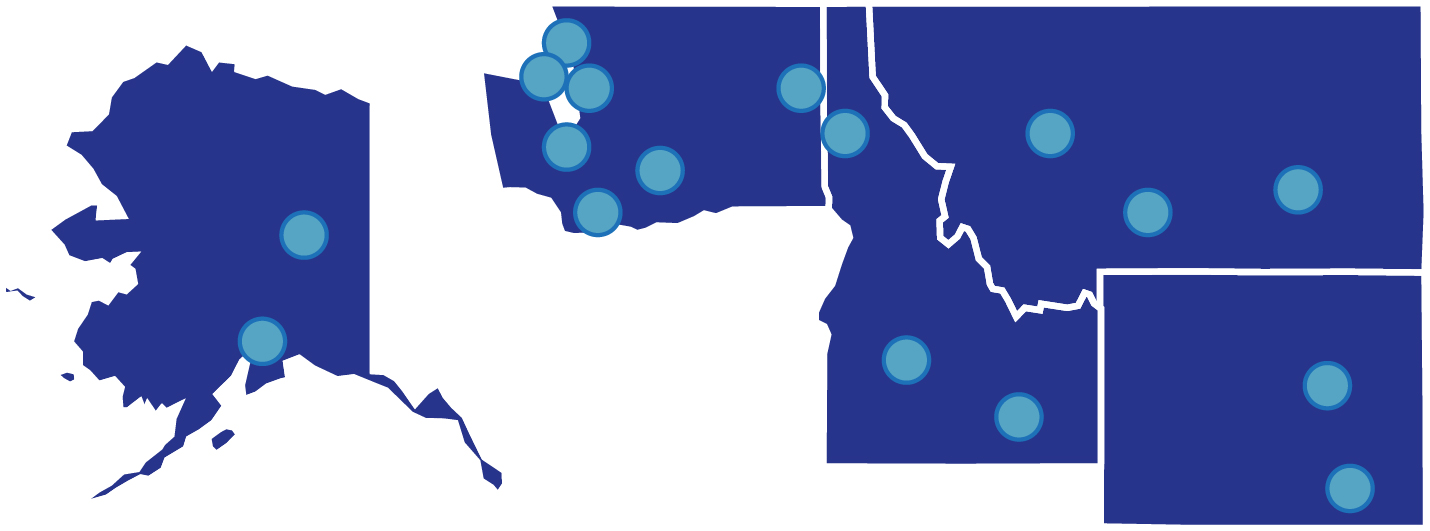
ITHS Community Engagement Program
The ITHS Community Engagement program is committed to facilitating community-academic research partnerships in eastern Washington, Wyoming, Alaska, Montana and Idaho (WWAMI) that are true collaborations. We aim to increase community involvement in every stage of research. We promote research that will address priorities and health outcomes in the communities and practices we work with, and support these communities in becoming more engaged and savvy about research.
We work to understand the translational research interests, strengths and needs in the WWAMI region so that we can effectively facilitate multi-directional collaboration and exchange between academic, clinical, community-based organizations, and patients, and help support the development of a vibrant translational research community.
Program focus
All ITHS programs interact with regional constituents in significant ways, but the Community Engagement Program focuses on:
- Creating high-functioning, multidisciplinary academic, clinical, community, and patient research teams
- Providing tools, knowledge, skills, and institutional support to advance discovery into practice
Program goals
The ITHS and the Community Engagement Program meet its goals through:
- Bringing community health concerns to the forefront of research
- Enabling academic investigators to conduct research in real-world settings
- Addressing critical gaps in dissemination and implementation science
Activities
Activities
ITHS administers networks.
- We maintain clinical research networks within primary care clinical practices, clinical research centers in hospitals, health systems, and universities in the WWAMI (Washington, Wyoming, Alaska, Montana, Idaho) states.
ITHS makes collaborations happen.
- We create research partnerships with investigators, clinicians, communities and patients
ITHS searches out priorities.
- We ask communities, patients, clinicians and clinical organizations what health and research priorities are of the most interest and importance to them.
ITHS builds tools.
- We collaborate locally, regionally, and nationally with our partners to (1) identify gaps in the science of community engagement and dissemination and implementation, and (2) to build innovative tools, develop new methodologies, and create strategies to improve health.
ITHS mentors and trains.
- We integrate coaching and mentoring into our matching processes and develop training aligned with the needs of investigators and communities.
ITHS spreads the word.
- We leverage our expertise in dissemination and implementation sciences to enable investigators to scale up and spread their health innovations into practice
- We help clinics develop and implement strategies to ensure their patients receive the evidence-based care they need
Our Team
Faculty & Staff for Community Engagement and Participant & Clinical Interactions programs
Laura-Mae Baldwin, MD, MPH
[CE, WPRN]
Sonia Bishop
[CE, PEP]
Dani Blackburn, MSBA, CCLS
 Dani Blackburn is a data analyst with Seattle Children’s Research Institute. She started her career in pediatrics working as a Certified Child Life Specialist, helping kids cope with hospitalization and procedures, where she quickly developed a passion for research, quality improvement, and evidence-based practice. She earned a Master of Science in Business Analytics in 2018 from the University of Utah and has been working as a data analyst at children’s hospitals ever since. Dani’s technical experience spans the data lifecycle, from querying and preparing data for analysis to creating data dashboards with a focus on end-user experience. She stays connected to the field of child life by teaching Research Methodologies to child life students at the University of California Santa Barbara. Dani is new to supporting ITHS, but excited by the mission and ready to contribute to the team! [PCI]
Dani Blackburn is a data analyst with Seattle Children’s Research Institute. She started her career in pediatrics working as a Certified Child Life Specialist, helping kids cope with hospitalization and procedures, where she quickly developed a passion for research, quality improvement, and evidence-based practice. She earned a Master of Science in Business Analytics in 2018 from the University of Utah and has been working as a data analyst at children’s hospitals ever since. Dani’s technical experience spans the data lifecycle, from querying and preparing data for analysis to creating data dashboards with a focus on end-user experience. She stays connected to the field of child life by teaching Research Methodologies to child life students at the University of California Santa Barbara. Dani is new to supporting ITHS, but excited by the mission and ready to contribute to the team! [PCI]
Robert H. Coker, PhD, FACSM, FTOS
 Dr. Coker received his PhD in Exercise Science from the University of Mississippi and completed research fellowships in Molecular Physiology and Clinical Physiology at Vanderbilt University and Bispebjerg Hospital in Copenhagen, Denmark, respectively. He began his academic career at the University of Arkansas for Medical Sciences, later joining the University of Alaska Fairbanks to establish a program in translational biomedicine. He co-founded Essential Blends, LLC in 2013, and acquired several Small Business grants from the National Institutes of Health that led to successful commercialization (https://aminoco.com). Dr. Coker is now Deputy Director/Research Professor, Montana Center for Work Physiology and Exercise Metabolism at the University of Montana where he has secured multiple grants from the Department of Defense largely focused on the maintenance of metabolic resilience under austere circumstances. A long-time advocate of health equity, he continues to serve as Chair, Steering Committee for the NW PCI network and actively works with ITHS to enhance diversity. He is a Fellow of the American College of Sports Medicine and The Obesity Society and was inducted into the Alaska Innovators Hall of Fame in 2020. With any spare time, you will find him and his family in the mountains. [PCI]
Dr. Coker received his PhD in Exercise Science from the University of Mississippi and completed research fellowships in Molecular Physiology and Clinical Physiology at Vanderbilt University and Bispebjerg Hospital in Copenhagen, Denmark, respectively. He began his academic career at the University of Arkansas for Medical Sciences, later joining the University of Alaska Fairbanks to establish a program in translational biomedicine. He co-founded Essential Blends, LLC in 2013, and acquired several Small Business grants from the National Institutes of Health that led to successful commercialization (https://aminoco.com). Dr. Coker is now Deputy Director/Research Professor, Montana Center for Work Physiology and Exercise Metabolism at the University of Montana where he has secured multiple grants from the Department of Defense largely focused on the maintenance of metabolic resilience under austere circumstances. A long-time advocate of health equity, he continues to serve as Chair, Steering Committee for the NW PCI network and actively works with ITHS to enhance diversity. He is a Fellow of the American College of Sports Medicine and The Obesity Society and was inducted into the Alaska Innovators Hall of Fame in 2020. With any spare time, you will find him and his family in the mountains. [PCI]
Allison Cole, MD, MPH (She/Her)
 Dr. Cole is an Associate Professor in the Department of Family Medicine at the University of Washington School of Medicine. She is also a family physician and researcher at the University of Washington. Dr. Cole directs the WWAMI region Practice and Research Network and leads a research program focused on implementing evidence-based interventions in primary care settings and rural health. She completed her medical school and residency training in Family Medicine at the University of Iowa and remains a devoted Hawkeye fan. [CE, WPRN, RHI, D&I]
Dr. Cole is an Associate Professor in the Department of Family Medicine at the University of Washington School of Medicine. She is also a family physician and researcher at the University of Washington. Dr. Cole directs the WWAMI region Practice and Research Network and leads a research program focused on implementing evidence-based interventions in primary care settings and rural health. She completed her medical school and residency training in Family Medicine at the University of Iowa and remains a devoted Hawkeye fan. [CE, WPRN, RHI, D&I]
Laurie Hassell (She/Her)
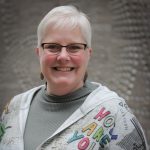 Ms. Hassell is the Director of Community Engagement at the Institute of Translational Health Sciences and works to promote and support translational research collaboration between investigators and clinicians throughout the WWAMI region. She is the operations lead for the ITHS Community Engagement and Participant & Clinical Interactions Programs, and Co-Founder and Coordinator of the Northwest Participant & Clinical Interactions Network, a network of WWAMI region clinical and translational research centers. Ensuring regional representation and alignment of ITHS programs and services with regional research priorities, and connecting investigators with research resources available through the ITHS are integral elements of her work. Ms. Hassell has a bachelor’s degree in biology from Oregon State University. Before joining the ITHS in 2010, Ms. Hassell served as the Regional Manager for the Northwest Association for Biomedical Research and co‐founded a biotechnology training company. Ms. Hassell lives in Coeur d’Alene, Idaho with her husband Jay. [CE, PCI, PEP, WPRN, RHL]
Ms. Hassell is the Director of Community Engagement at the Institute of Translational Health Sciences and works to promote and support translational research collaboration between investigators and clinicians throughout the WWAMI region. She is the operations lead for the ITHS Community Engagement and Participant & Clinical Interactions Programs, and Co-Founder and Coordinator of the Northwest Participant & Clinical Interactions Network, a network of WWAMI region clinical and translational research centers. Ensuring regional representation and alignment of ITHS programs and services with regional research priorities, and connecting investigators with research resources available through the ITHS are integral elements of her work. Ms. Hassell has a bachelor’s degree in biology from Oregon State University. Before joining the ITHS in 2010, Ms. Hassell served as the Regional Manager for the Northwest Association for Biomedical Research and co‐founded a biotechnology training company. Ms. Hassell lives in Coeur d’Alene, Idaho with her husband Jay. [CE, PCI, PEP, WPRN, RHL]
Erika Holden
[CE, D&I]
Linda Ko, PhD
[CE, CHC]
Allison Lambert, MD, MHS
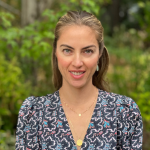 Dr. Lambert is an Assistant Professor of Medicine at the University of Washington. She is a pulmonologist and clinical researcher within the Providence Medical Research Center. Dr. Lambert’s research focuses on chronic obstructive pulmonary disease, cystic fibrosis, and other pulmonary disorders, including COVID-19. She is the Director of the Cystic Fibrosis Program and Therapeutic Development Network site at Providence Sacred Heart Medical Center in Spokane WA. In these roles, she determines strategic direction, oversees daily operations and program evaluations, and conducts clinical trials.
Dr. Lambert is an Assistant Professor of Medicine at the University of Washington. She is a pulmonologist and clinical researcher within the Providence Medical Research Center. Dr. Lambert’s research focuses on chronic obstructive pulmonary disease, cystic fibrosis, and other pulmonary disorders, including COVID-19. She is the Director of the Cystic Fibrosis Program and Therapeutic Development Network site at Providence Sacred Heart Medical Center in Spokane WA. In these roles, she determines strategic direction, oversees daily operations and program evaluations, and conducts clinical trials.
A graduate of Mount Sinai School of Medicine in New York, NY and of the Johns Hopkins Bloomberg School of Public Health in Baltimore, MD. She completed her residency in Internal Medicine at Mount Sinai Hospital in New York, NY and her fellowship in Pulmonary and Critical Care at Johns Hopkins Hospital in Baltimore, MD. Dr. Lambert is the Co-Director of the Northwest Participant and Clinical Interactions Network and serves on the Regional Executive Committee and REMOTECH Steering Committee for the University of Washington Institute for Translational Health Sciences. She is dedicated to increasing access to clinical and translational research for rural and remote dwelling populations. [PCI]
Kelly McGrath, MD, MS
[RHI]
James Probus (He/Him)
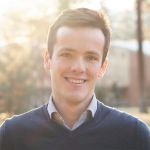 Mr. Probus is a Project Coordinator with the UW’s Institute of Translational Health Sciences. He works with the Community Engagement core and primarily supports the WWAMI Practice and Research Network (WPRN) and the NW Participant and Clinical Interactions Network. [CE, PCI, WPRN, PEP]
Mr. Probus is a Project Coordinator with the UW’s Institute of Translational Health Sciences. He works with the Community Engagement core and primarily supports the WWAMI Practice and Research Network (WPRN) and the NW Participant and Clinical Interactions Network. [CE, PCI, WPRN, PEP]
Kari Stephens, PhD (She/Her)
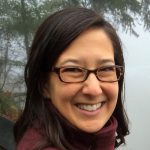 Dr. Kari Stephens is Helen D. Cohen Endowed Professor, Research Section Head, Director of Clinical Research Informatics, and Professor in Family Medicine and Adjunct Associate Professor in Biomedical Informatics and Medical Education at the UW School of Medicine. Dr. Stephens is a practicing clinical psychologist and biomedical informaticist conducting research focused on health equity, integrated behavioral health, chronic pain, posttraumatic stress disorder, anxiety, depression, substance use, cancer, long COVID, and informatics data sharing, particularly in primary care settings. Dr. Stephens currently conducts clinical research and leads informatics and innovations in data sharing as Director of Data QUEST, overseeing a regional electronic health record systems based primary care data sharing network, which has supported over $100M in grant funded projects, as an Associate Director with the National Alzheimer’s Coordinating Center, and as an executive faculty member within the Institute of Translational Health Science’s Biomedical Informatics Core. [CE, Data QUEST]
Dr. Kari Stephens is Helen D. Cohen Endowed Professor, Research Section Head, Director of Clinical Research Informatics, and Professor in Family Medicine and Adjunct Associate Professor in Biomedical Informatics and Medical Education at the UW School of Medicine. Dr. Stephens is a practicing clinical psychologist and biomedical informaticist conducting research focused on health equity, integrated behavioral health, chronic pain, posttraumatic stress disorder, anxiety, depression, substance use, cancer, long COVID, and informatics data sharing, particularly in primary care settings. Dr. Stephens currently conducts clinical research and leads informatics and innovations in data sharing as Director of Data QUEST, overseeing a regional electronic health record systems based primary care data sharing network, which has supported over $100M in grant funded projects, as an Associate Director with the National Alzheimer’s Coordinating Center, and as an executive faculty member within the Institute of Translational Health Science’s Biomedical Informatics Core. [CE, Data QUEST]
Sebastian Tong, MD, MPH (He/Him)
 Dr. Tong is a practicing family physician and addiction medicine specialist. He is an Assistant Professor of Family Medicine at the University of Washington in Seattle where he also serves as the Associate Director of the Washington, Wyoming, Alaska, Montana and Idaho region Practice and Research Network. He practices outpatient family medicine and addiction medicine at the Harborview Family Medicine Clinic. He conducts research in practice-based research, substance use, behavioral health, and chronic pain, and has received funding from the National Institute on Drug Abuse, the National Institute of Nursing Research and the Agency for Healthcare Research and Quality. He is one of the National Academy of Medicine’s 2023-2025 James C. Puffer/American Board of Family Medicine Fellows. He completed medical school at Boston University School of Medicine, received a Master of Public Health from the Harvard School of Public Health, and finished his residency training in family medicine at the Greater Lawrence Family Health Center. [CE, WPRN]
Dr. Tong is a practicing family physician and addiction medicine specialist. He is an Assistant Professor of Family Medicine at the University of Washington in Seattle where he also serves as the Associate Director of the Washington, Wyoming, Alaska, Montana and Idaho region Practice and Research Network. He practices outpatient family medicine and addiction medicine at the Harborview Family Medicine Clinic. He conducts research in practice-based research, substance use, behavioral health, and chronic pain, and has received funding from the National Institute on Drug Abuse, the National Institute of Nursing Research and the Agency for Healthcare Research and Quality. He is one of the National Academy of Medicine’s 2023-2025 James C. Puffer/American Board of Family Medicine Fellows. He completed medical school at Boston University School of Medicine, received a Master of Public Health from the Harvard School of Public Health, and finished his residency training in family medicine at the Greater Lawrence Family Health Center. [CE, WPRN]
Katherine R. Tuttle, MD, FASN, FACP, FNKF
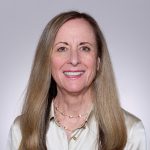 Katherine R. Tuttle, MD, FASN, FACP, FNKF, is Executive Director for Research at Providence Inland Northwest Health, Regional Principal Investigator of the Institute of Translational Health Sciences and Professor of Medicine at the University of Washington. Dr. Tuttle earned her medical degree and completed her residency in Internal Medicine at Northwestern University in Chicago, Illinois. She was a fellow in Metabolism and Endocrinology at Washington University in St. Louis, Missouri. Her Nephrology fellowship training was performed at University of Texas Health Science Center in San Antonio, Texas.
Katherine R. Tuttle, MD, FASN, FACP, FNKF, is Executive Director for Research at Providence Inland Northwest Health, Regional Principal Investigator of the Institute of Translational Health Sciences and Professor of Medicine at the University of Washington. Dr. Tuttle earned her medical degree and completed her residency in Internal Medicine at Northwestern University in Chicago, Illinois. She was a fellow in Metabolism and Endocrinology at Washington University in St. Louis, Missouri. Her Nephrology fellowship training was performed at University of Texas Health Science Center in San Antonio, Texas.
Dr. Tuttle’s major research interests are in diabetes and chronic kidney disease. She has published over 350 original articles and served as Associate Editor for the Clinical Journal of the American Society of Nephrology and the American Journal of Kidney Disease. Dr. Tuttle has received many honors and awards including the John P. Peters Lifetime Achievement Award from the American Society of Nephrology, Medal of Excellence from the American Association of Kidney Patients, Garabed Eknoyan Award from the National Kidney Foundation, the YWCA Woman of Achievement Award in Science, and two Outstanding Clinical Faculty Awards at the University of Washington. Dr. Tuttle is currently Chair of the Diabetic Kidney Disease Collaborative Task Force for the American Society of Nephrology. She served on the inaugural Board of Directors for the Kidney Health Initiative and has chaired numerous other working groups and committees for organizations including the NIDDK/NIH, the National Kidney Foundation, the American Society of Nephrology, the International Society of Nephrology, and the American Diabetes Association. {PCI]
Dillon van Rensburg, MPH, MCHES (He/Him)
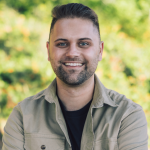 Mr. van Rensburg is a Research Scientist at the University of Washington’s Institute of Translational Health Sciences (ITHS). He is part of the Community Engagement core at ITHS, where he supports a variety of community-engaged research studies. He also supports training on the science of community engagement in translational research and provides coordination for investigator-community matching programs. Mr. van Rensburg serves on the Coordinating Center for the WWAMI region Practice and Research Network (WPRN) and is the current Treasurer for the Washington Rural Health Association. He holds a Master of Public Health degree in Health Services from the University of Washington and is a Master Certified Health Education Specialist (MCHES). With a strong focus on rural and underserved populations, he is committed to improving health outcomes through innovative, community-driven approaches. [CE, WPRN, PCI]
Mr. van Rensburg is a Research Scientist at the University of Washington’s Institute of Translational Health Sciences (ITHS). He is part of the Community Engagement core at ITHS, where he supports a variety of community-engaged research studies. He also supports training on the science of community engagement in translational research and provides coordination for investigator-community matching programs. Mr. van Rensburg serves on the Coordinating Center for the WWAMI region Practice and Research Network (WPRN) and is the current Treasurer for the Washington Rural Health Association. He holds a Master of Public Health degree in Health Services from the University of Washington and is a Master Certified Health Education Specialist (MCHES). With a strong focus on rural and underserved populations, he is committed to improving health outcomes through innovative, community-driven approaches. [CE, WPRN, PCI]
Monica Zigman Suchsland, PhD(c), MPH (She/Her)
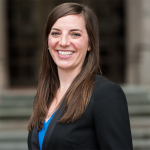 Ms. Zigman Suchsland is a Research Scientist in the UW Medicine Department of Family Medicine and a PhD candidate in the UW School of Public Health Department of Epidemiology. Her primary role as a research scientist is split between managing the WWAMI region practice and Research Network and managing the Cognition in Primary Care (CPC) Program (Cognition-PrimaryCare.org). In the past, she has worked extensively managing health research projects ranging from field studies to clinical trials. Her research interests include diagnostics, screening, and data driven methods in primary care. Her dissertation research aims to improve understanding of the clinical course of concussion and time to recovery after a concussion injury. [CE, WPRN]
Ms. Zigman Suchsland is a Research Scientist in the UW Medicine Department of Family Medicine and a PhD candidate in the UW School of Public Health Department of Epidemiology. Her primary role as a research scientist is split between managing the WWAMI region practice and Research Network and managing the Cognition in Primary Care (CPC) Program (Cognition-PrimaryCare.org). In the past, she has worked extensively managing health research projects ranging from field studies to clinical trials. Her research interests include diagnostics, screening, and data driven methods in primary care. Her dissertation research aims to improve understanding of the clinical course of concussion and time to recovery after a concussion injury. [CE, WPRN]
Fees
Fees
The first two hours of consultation are free with an additional 10 hours if Community Engagement personnel will be included in grant applications. Consultation costs and effort percentages are negotiable and are subject to the availability of personnel and resources.
Contact Us
Contact Us
Request Services
Request Services
Please sign in below to access this form.
Access to this form is restricted to ITHS Members. Please sign in.
Not yet an ITHS member?
Members of ITHS are part of a unique catalyst that accelerates discoveries to practice. If you haven't signed up for an ITHS membership yet, learn more and join us.




